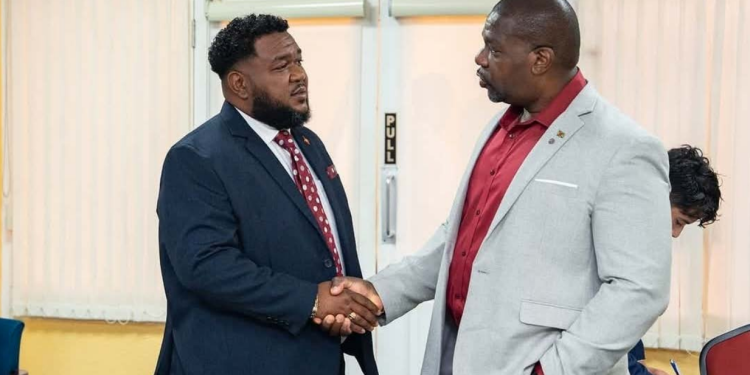As it relates to protecting Workers’ Rights, as we addressed and covered the topic of Labour Migration within CARICOM Member States, I wish firstly to state that the Antigua Trades and Labour Union mission statement which reads, “To ensure that the rights of workers, enshrined in law and enabled through collective bargaining, are duly and fully protected within an economic system designed to provide a higher standard for living for all”. Further to this Trade Union’s fundamental mandate is to guarantee that work fulfils the function of upliftment and provides sufficient economic reward to exceed the basic requirements of workers and their families.
In furtherance to the above philosophy, migrant workers must have equal rights, just like the local worker of each Member State. The minimum wage must be respected and paid, the right to association and the right to collective bargaining must not be challenged by the employer of migrant workers. In many cases, they form the Informal Work Sector within the Labour Sector of that Member State. Employers must be guided to abide by the Decent Work Agenda established by the Internation labour Organization (ILO), which provides provisions for workers to be treated with dignity, equality, and workers should make a fair income especially when qualifications have been attained.
Additionally, workers must have Social Protections to include social security benefits, national health benefits and educational placement for workers’ dependents. Employers must follow safety and health protocols specially as it relates to the impact on the working environment due to climate change and be proactive rather than reactive and the rights enshrined within the Labour Code of each member state must be adhered to.
There also must be an established policy that is equitable and follows the fair recruitment framework to give suitable and qualified workers be it Nationals, Caricom Nationals and Migrants Workers a reasonable recruitment process for employment. However, the most important objective from a Trade Unionist perspective is to keep the Social Dialogue alive especially at a Tri-partite level on these critical policies that will govern migrant workers in CARICOM member states for decades to come.



